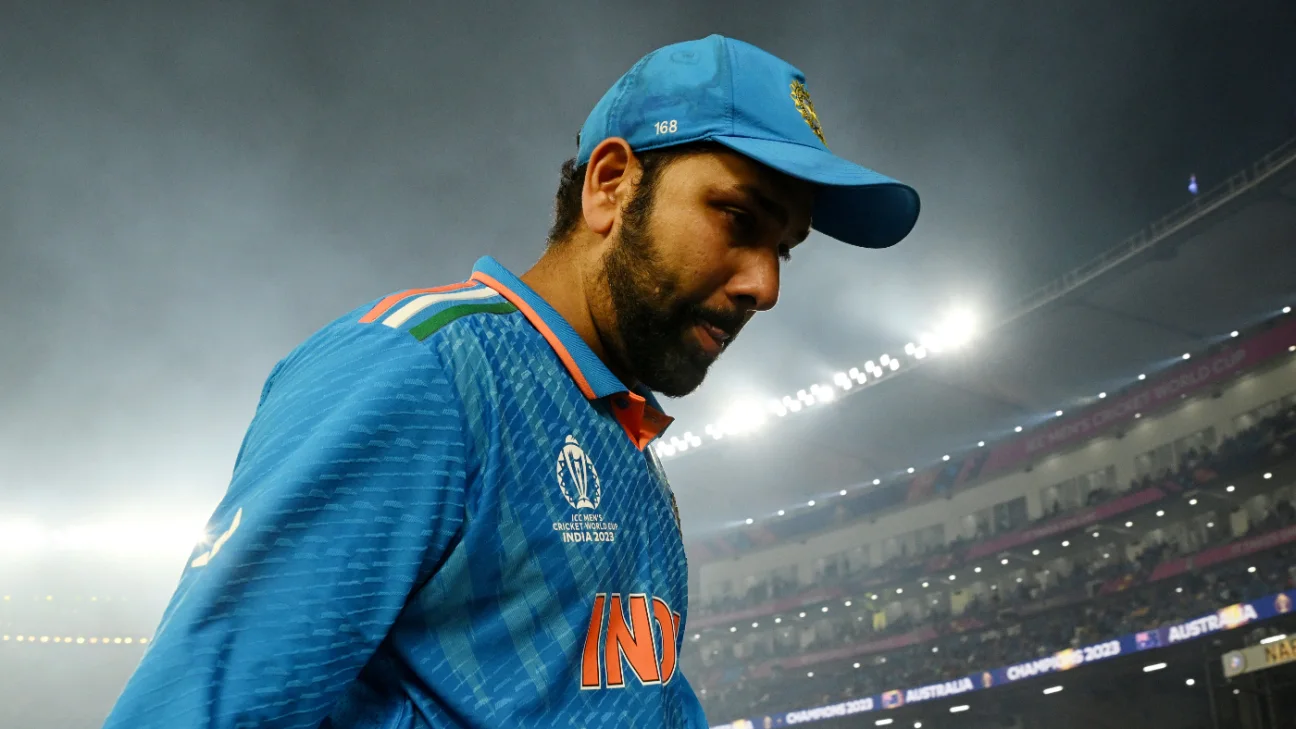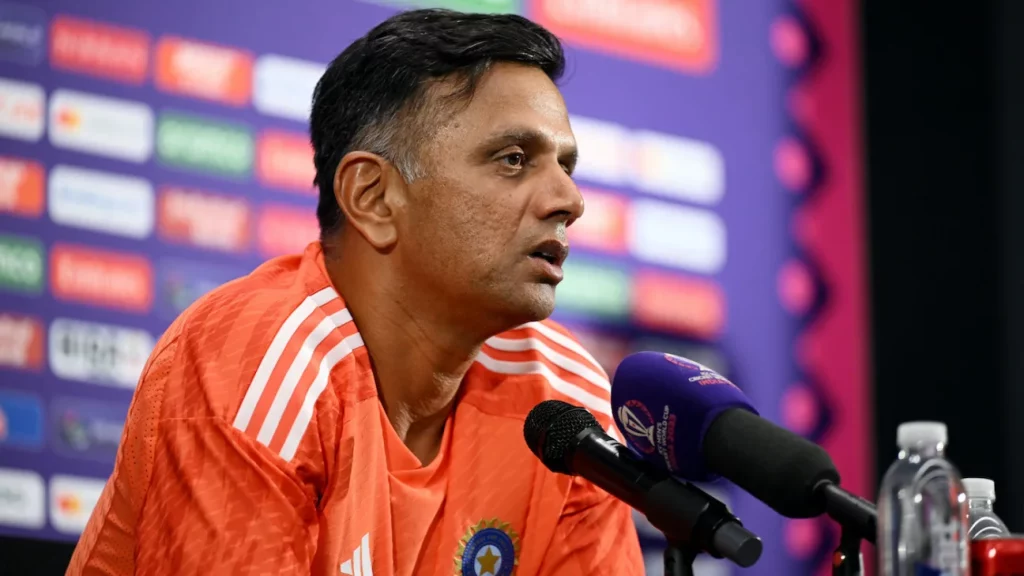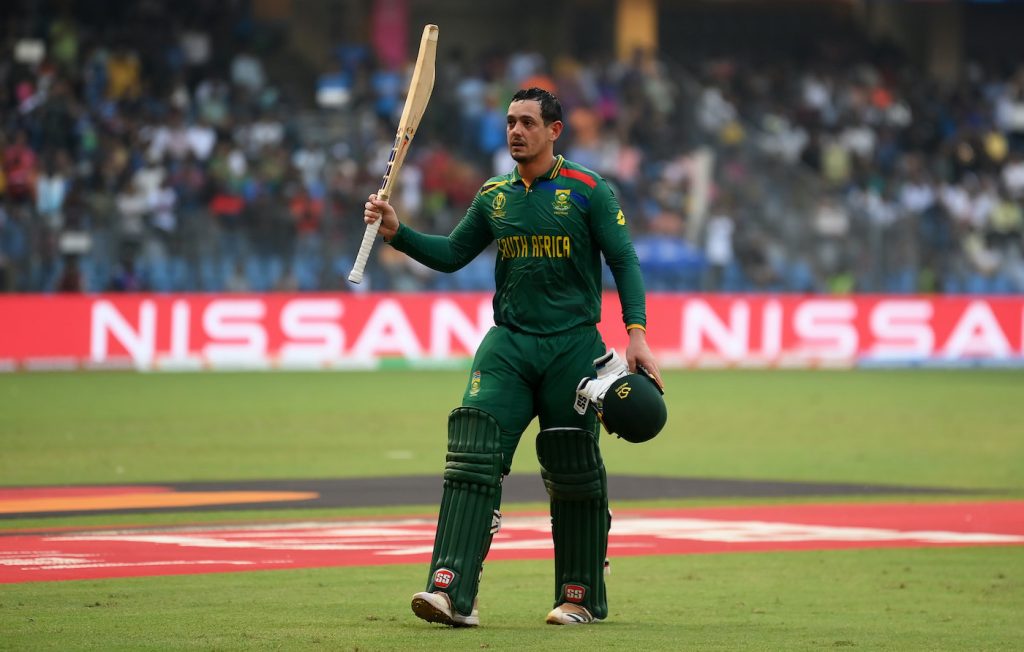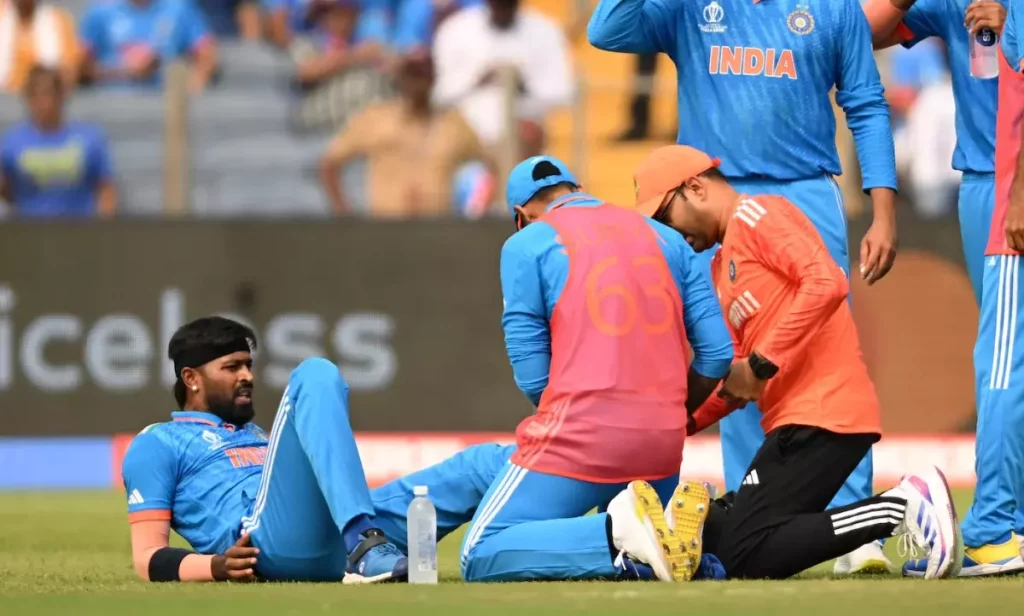In the aftermath of India’s defeat in the ICC Cricket World Cup 2023 final against Australia, coach Rahul Dravid provided a detailed analysis of the team’s performance.
Contrary to perceptions of a conservative approach, Dravid emphasized that the Indian team did not play with fear.
He highlighted the team’s initial aggressive batting, led by Rohit Sharma, and the strategic shift necessitated by the loss of early wickets.
The Powerplay and the Shift in Momentum
Rohit Sharma’s 31-ball 47 set a strong foundation for India, with the team reaching 80 runs in the first 10 overs.
However, the loss of wickets led to a change in strategy, moving towards consolidation rather than aggression.
Dravid pointed out that this was not due to a lack of intent but a tactical response to the situation.
The team’s inability to score boundaries consistently in the middle overs was attributed to the wickets falling at regular intervals, not a defensive mindset.
The Impact of Conditions and the Need for More Runs
Dravid acknowledged that the playing conditions were more challenging during the afternoon, with the ball stopping a bit more than in the evening.
This affected India’s ability to score freely. He speculated that an additional 30-40 runs could have significantly altered the game’s dynamics, especially considering Australia’s early struggle in their chase.
The Bigger Picture: India’s Recent Performances in Global Events
Reflecting on India’s recent history in global tournaments, Dravid conceded that the team has not performed at its best on crucial days.
This includes semi-final exits and losses in finals across different formats. However, he dismissed the notion of nerves or intimidation affecting the team, praising their mental preparedness and energy leading into the final.
Leadership and Strategy: Rohit Sharma’s Role

Dravid lauded Rohit Sharma for his exceptional leadership and commitment to the team’s strategy.
He emphasized Sharma’s role in fostering a positive and attacking brand of cricket, leading by example throughout the tournament.
Dravid’s praise for Sharma extended beyond his on-field performance, highlighting his contributions in planning and strategy discussions.
Moving Forward: Reflections and Future Prospects
As Dravid’s two-year contract as head coach comes to an end, he refrained from discussing his future but focused on the team’s journey.
He acknowledged the emotional toll of the loss on the team but emphasized the importance of learning and moving forward.
Dravid’s perspective reflects the highs and lows of sports and the resilience required to navigate them.
Conclusion: India’s Journey of Resilience and Learning
The ICC Cricket World Cup 2023 final was a testament to India’s cricketing prowess and strategic adaptability.
Despite the loss, the team’s approach, as articulated by Rahul Dravid, showcased a blend of aggression, tactical awareness, and adaptability to changing conditions.
The reflections on leadership, team dynamics, and the broader context of India’s performance in global events provide valuable insights into the team’s journey and future direction.
As India looks ahead, the lessons from this World Cup will undoubtedly shape their approach in upcoming tournaments, reinforcing the ethos of resilience and continuous learning in sports.




